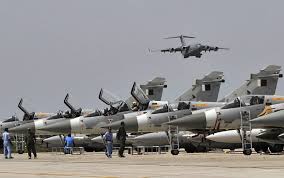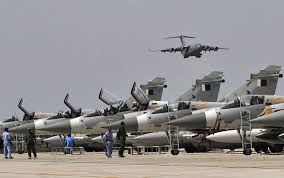
Proposed business mergers that can be threats to national security could be helped being blocked by the regulators as the Pentagon and other U.S. government agencies complete a legislative proposal in coming weeks. At present the US regulators can only block mergers based on just antitrust concerns, a top official said.
These comments were made by the Defense Undersecretary, Frank Kendall, who oversees arms weapons acquisitions and industrial base issues for the Pentagon, in an interview, after first mentioning the legislative push in September.
Concerns were raised by Kendall in September as he warned that big weapons makers were not hesitant to use the power that came with increased size for their own corporate advantage and expressed concerns about further consolidation among the biggest players in the U.S. weapons industry.
Just a few days ago, in one of the biggest acquisitions in the weapons industry in years, the U.S. Justice Department approved Lockheed Martin Corp's $9 billion takeover of Sikorsky Aircraft from United Technologies Corp. the comments followed this acquisition.
While mentioning that the Pentagon did not want to see the arms making industrial base whittled down to two or three very large suppliers, at the time of the merger Kendall had said the U.S. Justice Department cleared Lockheed's acquisition of the helicopter maker because there was no direct anti-competitive issue.
The new proposal that the Pentagon was working with the Justice Department and other agencies, said Kendall, would add a national security provision to current law while admitting that such large mergers in other industrial sectors are subject to a "public interest" provision since they serve the nation but not in the security sector.
He said the proposal should be wrapped up soon and sent to lawmakers for their consideration.
It was however unclear whether the legislation could be passed in a presidential election year, Kendall said. He however added that it was important to address the issue.
"It's a debate we should have," he said.
Higher costs, decreased innovation and less competition were the most probable fall outs from further consolidation among prime contractors in the weapons industry according to the Pentagon officials.
Due to a sharp fall in the military spending after the end of the Cold War, there were dozens of companies in the sector that merged in the 1990s. the result of such mergers was the formation of a few large companies like Lockheed, Boeing Co, Northrop Grumman Corp, General Dynamics Corp and Raytheon Co that dominate the market
A high percentage of the military helicopter market would move into a company that already dominates the U.S. fighter jet market as the prime contractor on the $391 billion F-35 fighter jet program, Kendall said while describing the consequences of the Lockheed-Sikorsky deal.
Lockheed said there was no evidence that larger defense companies reduced competition or inhibit innovation
(Source:www.reuters.com)
These comments were made by the Defense Undersecretary, Frank Kendall, who oversees arms weapons acquisitions and industrial base issues for the Pentagon, in an interview, after first mentioning the legislative push in September.
Concerns were raised by Kendall in September as he warned that big weapons makers were not hesitant to use the power that came with increased size for their own corporate advantage and expressed concerns about further consolidation among the biggest players in the U.S. weapons industry.
Just a few days ago, in one of the biggest acquisitions in the weapons industry in years, the U.S. Justice Department approved Lockheed Martin Corp's $9 billion takeover of Sikorsky Aircraft from United Technologies Corp. the comments followed this acquisition.
While mentioning that the Pentagon did not want to see the arms making industrial base whittled down to two or three very large suppliers, at the time of the merger Kendall had said the U.S. Justice Department cleared Lockheed's acquisition of the helicopter maker because there was no direct anti-competitive issue.
The new proposal that the Pentagon was working with the Justice Department and other agencies, said Kendall, would add a national security provision to current law while admitting that such large mergers in other industrial sectors are subject to a "public interest" provision since they serve the nation but not in the security sector.
He said the proposal should be wrapped up soon and sent to lawmakers for their consideration.
It was however unclear whether the legislation could be passed in a presidential election year, Kendall said. He however added that it was important to address the issue.
"It's a debate we should have," he said.
Higher costs, decreased innovation and less competition were the most probable fall outs from further consolidation among prime contractors in the weapons industry according to the Pentagon officials.
Due to a sharp fall in the military spending after the end of the Cold War, there were dozens of companies in the sector that merged in the 1990s. the result of such mergers was the formation of a few large companies like Lockheed, Boeing Co, Northrop Grumman Corp, General Dynamics Corp and Raytheon Co that dominate the market
A high percentage of the military helicopter market would move into a company that already dominates the U.S. fighter jet market as the prime contractor on the $391 billion F-35 fighter jet program, Kendall said while describing the consequences of the Lockheed-Sikorsky deal.
Lockheed said there was no evidence that larger defense companies reduced competition or inhibit innovation
(Source:www.reuters.com)





